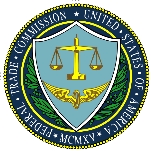The Federal Trade Commission (FTC) is responsible for policing business practices across the nation and making sure competition remains fair. When the FTC was created in 1914, its purpose was to prevent unfair methods of competition in commerce as part of early government efforts to break up large trusts and prevent them from dominating industries. Over the years, Congress has passed additional laws giving the FTC greater authority to police anticompetitive practices. Today, the commission administers a wide variety of other consumer protection laws. Some of the recent issues the FTC has dealt with include truthful advertising practices and price fixing. The commission also provides workshops, hearings, and conferences and creates educational programs for both consumers and businesses. Recent controversies involving the high-tech, drug, insurance, telecommunications, and social networking sectors have kept the agency busier than ever.
The FTC was created in 1914 to help prevent unfair competitive advantages in the marketplace. This came as a result of lawmakers, as well as President Woodrow Wilson, attempting to “bust the trusts,” or break apart monopolies that discouraged competition from smaller and less powerful businesses. The original legislation creating the agency was called the Federal Trade Commission Act.
The FTC is an independent agency of the federal government responsible for providing consumer protection and making sure business practices remain fair. The FTC deals with complaints that are filed regarding unfair business practices such as scams, deceptive advertising and monopolistic practices. It reviews these complaints to determine if businesses are in fact engaging in harmful practices. The FTC is also responsible for reviewing business mergers to ensure that they do not hurt competition in the market and potentially harm consumers. Generally speaking, the FTC does not have the ability to directly enforce its rulings, but it can go to the courts to have them enforced.
The FTC spent $283.2 million on 5,467 transactions during the past decade. According to USASpending.gov, the FTC paid for a variety of services, from automatic data processing equipment to management support and expert witness services in support of its goals.
FTC Goes After Google for Antitrust and More Privacy Troubles
- Table of Contents
- Overview
- History
- What it Does
- Where Does the Money Go
- Controversies
- Suggested Reforms
- Comments
- Leave a comment

On March 4, 2013, President Barack Obama appointed Edith Ramirez to be chairwoman of the Federal Trade Commission (FTC), becoming the first member of an ethnic minority to lead the agency. Ramirez had been a member of the FTC board since being confirmed by the Senate in April, 2010. Because of that, she required no further confirmation to chair the commission.
Ramirez was born in San Clemente, California, to parents who were immigrants from Mexico. She attended San Clemente High School, graduating in 1985 as valedictorian. Ramirez, who speaks Spanish, went to Harvard, earning a B.A. in history in 1989. She went on to attend Harvard Law School, where she worked with Obama on the Harvard Law Review. Ramirez earned her law degree in 1992 and then served a clerkship with Judge Alfred Goodwin of the Ninth Circuit Court of Appeals.
Ramirez returned to California in 1993 to work as an associate for the firm of Gibson, Dunn & Crutcher in Los Angeles. In 1996, she moved to Quinn Emanuel Urquhart & Sullivan, one of the largest litigation firms in the United States. She was made a partner in the firm and she worked on anti-trust law among other issues. Her clients included Disney, Mattel and Northrup Grumman.
Besides corporate clients, Ramirez worked with the Los Angeles Center for Law and Justice, a legal aid corporation focusing on Los Angeles’ Hispanic community and was a director of Volunteers of America.
In 2005, Ramirez was appointed to the Los Angeles Department of Water and Power Board of Commissioners, becoming commission vice president a year later. She served on the board until 2010. Ramirez directed Obama’s California Latino outreach efforts in California during his 2008 campaign.
Since joining the FTC, Ramirez has focused on children’s privacy issues and other electronic privacy issues. Under her direction, the commission has obtained a settlement from Warner Music Group for collecting children’s personal information on their fan sites for Justin Bieber and other pop stars. She also led the collection of a $32.5 million settlement from Apple, which allowed unauthorized purchases from its app store.
“As mobile technology proliferates and connected devices become more commonplace, one of my priorities has been to address the privacy and consumer protection issues associated with these technologies at an early stage,” Ramirez said in an interview with AdWeek.
Ramirez is also an advocate of “Do-Not-Track” technology, which would allow consumers to opt out of having their personal information gathered while surfing the Web. Similarly, she has urged more transparency from data brokers, which mine internet users’ personal information and sell it.
-Steve Straehley
To Learn More:
White House Elevates a Commissioner to Chairwoman of the FTC (by Edward Wyatt, New York Times)
FTC Chair Edith Ramirez Fights for Data Security and Privacy Rights (by Katy Bachman, AdWeek)

As the only Democrat then on the board of the Federal Trade Commission (FTC), Jon Leibowitz was not much of a surprise pick by President Barack Obama to head up the regulatory commission. But his role as chairman is expected to move the FTC in new directions that could mean tougher times for drug manufacturers, marketers and Internet advertisers. The FTC may also grow in size if Leibowitz—a former Capitol Hill staffer and Hollywood lobbyist—can convince lawmakers to increase the commission’s budget.
- Latest News
- D.C. Public Schools will Teach all Second-Graders to Ride a Bike
- New Rule in Germany Limits Sales of Sex-Themed E-Books to 10pm to 6am
- What Happened to the 6-Year-Old Tibetan Boy the Chinese Government Kidnapped 20 Years Ago?
- U.S. Ambassador to Turkey Photoshops his Hair Color to Mock Turkish Mayor
- Mystery Artist Calls Attention to Unfixed Potholes by Drawing Penises around Them
The Federal Trade Commission (FTC) is responsible for policing business practices across the nation and making sure competition remains fair. When the FTC was created in 1914, its purpose was to prevent unfair methods of competition in commerce as part of early government efforts to break up large trusts and prevent them from dominating industries. Over the years, Congress has passed additional laws giving the FTC greater authority to police anticompetitive practices. Today, the commission administers a wide variety of other consumer protection laws. Some of the recent issues the FTC has dealt with include truthful advertising practices and price fixing. The commission also provides workshops, hearings, and conferences and creates educational programs for both consumers and businesses. Recent controversies involving the high-tech, drug, insurance, telecommunications, and social networking sectors have kept the agency busier than ever.
The FTC was created in 1914 to help prevent unfair competitive advantages in the marketplace. This came as a result of lawmakers, as well as President Woodrow Wilson, attempting to “bust the trusts,” or break apart monopolies that discouraged competition from smaller and less powerful businesses. The original legislation creating the agency was called the Federal Trade Commission Act.
The FTC is an independent agency of the federal government responsible for providing consumer protection and making sure business practices remain fair. The FTC deals with complaints that are filed regarding unfair business practices such as scams, deceptive advertising and monopolistic practices. It reviews these complaints to determine if businesses are in fact engaging in harmful practices. The FTC is also responsible for reviewing business mergers to ensure that they do not hurt competition in the market and potentially harm consumers. Generally speaking, the FTC does not have the ability to directly enforce its rulings, but it can go to the courts to have them enforced.
The FTC spent $283.2 million on 5,467 transactions during the past decade. According to USASpending.gov, the FTC paid for a variety of services, from automatic data processing equipment to management support and expert witness services in support of its goals.
FTC Goes After Google for Antitrust and More Privacy Troubles
Comments

On March 4, 2013, President Barack Obama appointed Edith Ramirez to be chairwoman of the Federal Trade Commission (FTC), becoming the first member of an ethnic minority to lead the agency. Ramirez had been a member of the FTC board since being confirmed by the Senate in April, 2010. Because of that, she required no further confirmation to chair the commission.
Ramirez was born in San Clemente, California, to parents who were immigrants from Mexico. She attended San Clemente High School, graduating in 1985 as valedictorian. Ramirez, who speaks Spanish, went to Harvard, earning a B.A. in history in 1989. She went on to attend Harvard Law School, where she worked with Obama on the Harvard Law Review. Ramirez earned her law degree in 1992 and then served a clerkship with Judge Alfred Goodwin of the Ninth Circuit Court of Appeals.
Ramirez returned to California in 1993 to work as an associate for the firm of Gibson, Dunn & Crutcher in Los Angeles. In 1996, she moved to Quinn Emanuel Urquhart & Sullivan, one of the largest litigation firms in the United States. She was made a partner in the firm and she worked on anti-trust law among other issues. Her clients included Disney, Mattel and Northrup Grumman.
Besides corporate clients, Ramirez worked with the Los Angeles Center for Law and Justice, a legal aid corporation focusing on Los Angeles’ Hispanic community and was a director of Volunteers of America.
In 2005, Ramirez was appointed to the Los Angeles Department of Water and Power Board of Commissioners, becoming commission vice president a year later. She served on the board until 2010. Ramirez directed Obama’s California Latino outreach efforts in California during his 2008 campaign.
Since joining the FTC, Ramirez has focused on children’s privacy issues and other electronic privacy issues. Under her direction, the commission has obtained a settlement from Warner Music Group for collecting children’s personal information on their fan sites for Justin Bieber and other pop stars. She also led the collection of a $32.5 million settlement from Apple, which allowed unauthorized purchases from its app store.
“As mobile technology proliferates and connected devices become more commonplace, one of my priorities has been to address the privacy and consumer protection issues associated with these technologies at an early stage,” Ramirez said in an interview with AdWeek.
Ramirez is also an advocate of “Do-Not-Track” technology, which would allow consumers to opt out of having their personal information gathered while surfing the Web. Similarly, she has urged more transparency from data brokers, which mine internet users’ personal information and sell it.
-Steve Straehley
To Learn More:
White House Elevates a Commissioner to Chairwoman of the FTC (by Edward Wyatt, New York Times)
FTC Chair Edith Ramirez Fights for Data Security and Privacy Rights (by Katy Bachman, AdWeek)

As the only Democrat then on the board of the Federal Trade Commission (FTC), Jon Leibowitz was not much of a surprise pick by President Barack Obama to head up the regulatory commission. But his role as chairman is expected to move the FTC in new directions that could mean tougher times for drug manufacturers, marketers and Internet advertisers. The FTC may also grow in size if Leibowitz—a former Capitol Hill staffer and Hollywood lobbyist—can convince lawmakers to increase the commission’s budget.
- Latest News
- D.C. Public Schools will Teach all Second-Graders to Ride a Bike
- New Rule in Germany Limits Sales of Sex-Themed E-Books to 10pm to 6am
- What Happened to the 6-Year-Old Tibetan Boy the Chinese Government Kidnapped 20 Years Ago?
- U.S. Ambassador to Turkey Photoshops his Hair Color to Mock Turkish Mayor
- Mystery Artist Calls Attention to Unfixed Potholes by Drawing Penises around Them






Comments